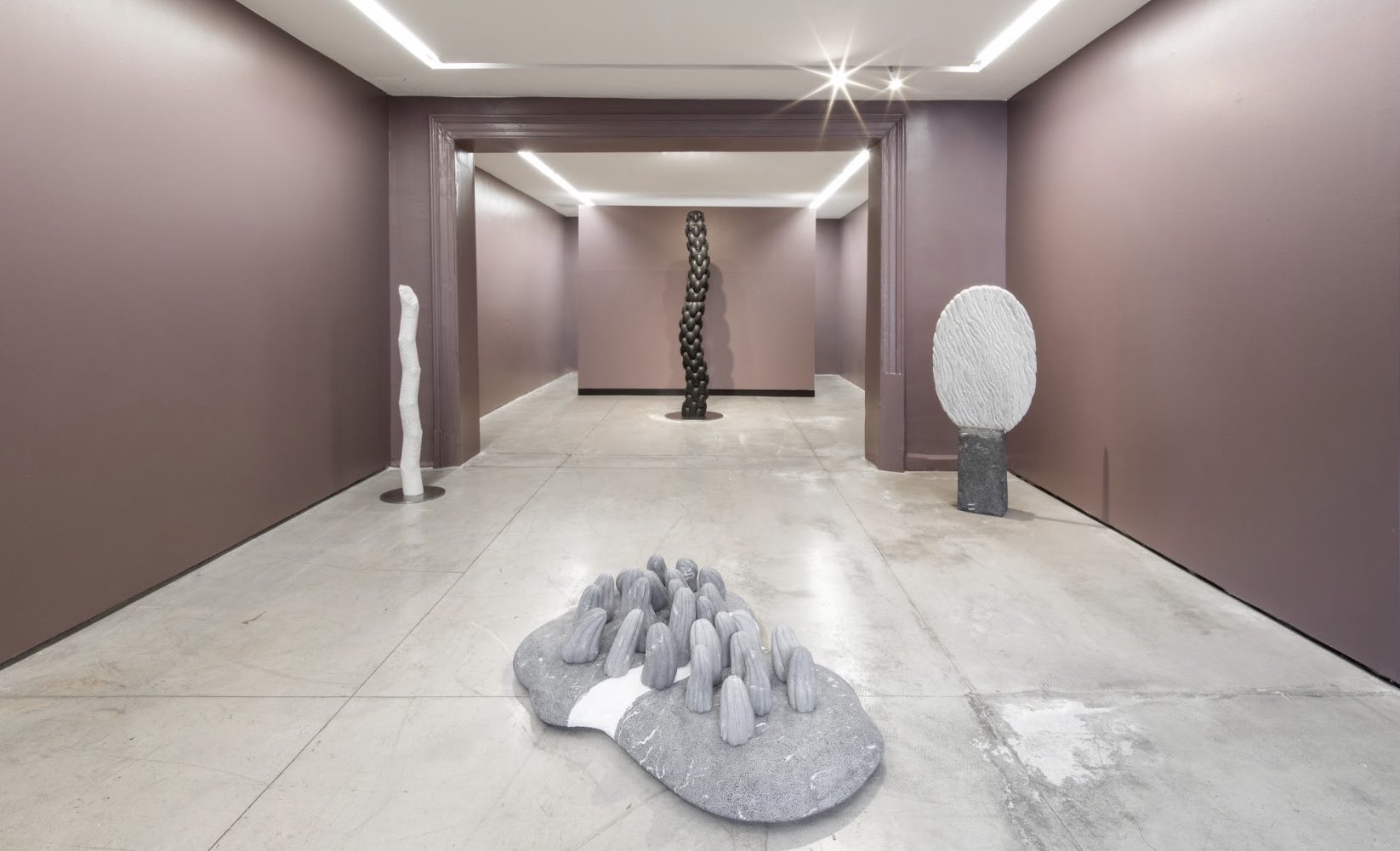
Paula Cortazar
Comunidad
Exhibition
-> Sep 9 2022 – Oct 20 2022
Machete presents Comunidad, the new solo show by Mexican artist Paula Cortazar (1991).
In this exhibition, each sculpture arises from the observation of the flora that grows around his studio in La Huasteca. Species that grow wildly and that are the product and circumstance of climate and time. The artist observes and celebrates them in an active investigation that concludes by sculpting them.
For each work she chooses a stone that originally has industrial uses or not, such as black marble from Monterrey or granite, all of which are part of the artist's language and her context.
Cortazar's practice is still vigorous, a young artist who challenges her own limits day by day, being part and standard of a new generation of sculptors.
— Machete
Rooted between the limits of abstraction and figuration, the work of Paula Cortazar (Monterrey 1991) is part of a narrative defined by the production of a sculpture of stylized and simplified forms that represent and equate vestiges and processes found in nature. The Community exhibition presents the artist's most recent body of work that starts from early pieces -intimately linked with the exploration of drawing on various organic sculptural materials- to give way to a renewed aesthetic discourse intrinsically related to the natural processes that arise and occur in the landscape adjacent to his home and studio, located in Parque de la Huasteca in Monterrey.
[...]
Cortazar does not intend to create direct figurations of the orography, topography and vegetation that surrounds it, but to evoke the intrinsic biological, social and relational processes of which they are a part. At first glance, the exhibition presents a sculpture garden in which we register elements of the native flora of the Northeast region of Mexico. Mezquites, choyas or agaves are recognizable as resources to trace a direct relationship with their context. The sculpture garden that the artist presents us is characteristic of a lightness, dynamism and deep understanding of her theme.
— Alberto Ríos de la Rosa